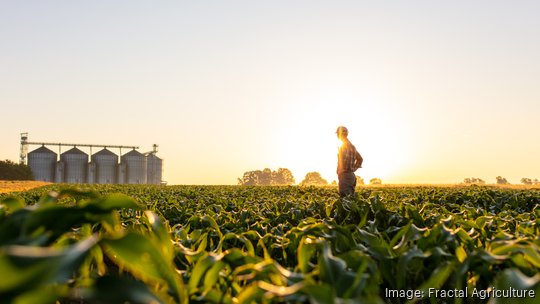
Growing up in eastern North Dakota, Ben Gordon was constantly around agriculture.
He always knew he’d find his way back into the industry after taking a detour through the Minnesota National Guard and business school. In 2018, he started with Granular, an ag-tech firm that had just been acquired by Corteva Agriscience.
“We were building all this great software that really helped [farmers] manage their business,” Gordon said. “But that didn’t change the underlying problem.”
He learned very quickly that farmers struggle with access to capital for land, an issue that became more dire as institutional investors have swooped into the market
He started Fractal Agriculture, a Minneapolis-based startup that offers a farmland equity financing platform that aims to fill a gap in farm financing. The model is centered on farmers and climate, and it launched last week.
Fractal invests alongside farmers by taking passive minority stakes in land that farmers already own. They receive the capital needed to expand their operations while investors access farmland. The land remains in the hands of the farmer, who is best set to drive higher returns.
The farmers decide how to use the capital to grow their business, whether that’s reinvesting in more land or equipment. Farmers that introduce regenerative practices get a discount on their annual payments.
The U.S. Department of Agriculture found in 2014 that nearly 40% of farmland was rented or leased and 80% was owned by non-operators. Even though about half of the country’s farmland at the time was in family farms, only half of them own the land where the work, which has been mostly true for the better half of the last century.
Gordon noted in a LinkedIn post that a massive generational land transfer is also underway, with an estimated 370 million acres of land — a $3 trillion asset class, he says — expected to change hands by 2030. “This puts tremendous pressure on farmers to access the capital needed to secure their rented acres and expand their operations,” Gordon wrote.
He said it’s hard to see a need “that is so incredibly real” for people he cares about. The team has been doing their first deals over the last couple months, and they’re ready for a wider breadth of farmers to adopt the platform. He called the platform a win-win for the farmers and investors.
“We'll be able to incentivize these climate-friendly farming practices in a way that helps investors make more money, and farmers make more money,” he said.



